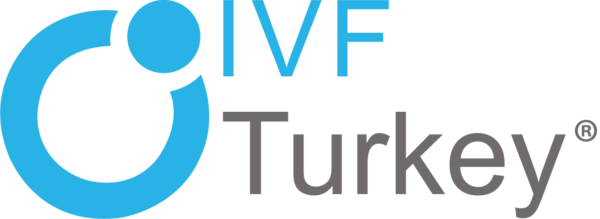IVF and Polycystic Ovary Syndrome (PCOS): Tailoring Treatment

Women all over the world are now affected by polycystic ovary syndrome (PCOS), one of today’s problems. Despite the fact that PCOS can result in a variety of issues, trying to conceive a child is the biggest one. IVF will be primarily discussed in this article as a successful treatment option for this disorder.
What is Polycystic Ovary Syndrome (PCOS)
Polycystic Ovary Syndrome (PCOS) is a hormonal disorder that affects many women worldwide. It is characterized by an imbalance in reproductive hormones, leading to irregular menstrual cycles, cysts on the ovaries, and difficulties in conceiving, for women with PCOS who are struggling to get pregnant.
IVF and Polycystic Ovary Syndrome
In Vitro Fertilization (IVF) can be an effective treatment option. However, due to the unique challenges presented by PCOS, tailoring the IVF treatment is crucial for success.
PCOS affects the way a woman’s body produces and processes hormones, which can make it difficult for the ovaries to release mature eggs regularly. In an IVF procedure, the goal is to stimulate the ovaries to produce multiple mature eggs that can be fertilized. However, women with PCOS may already have a higher number of immature eggs due to the condition, making it necessary to adjust the IVF protocol.
Medication to induce ovulation before starting IVF
One common adjustment is the use of medications to regulate ovulation. Women with PCOS may be prescribed medications such as Clomiphene citrate or Letrozole to induce ovulation before starting the IVF process. These medications help to stimulate the ovaries and increase the chances of producing mature eggs.
ovarian hyperstimulation syndrome (OHSS)
Another important consideration in tailoring IVF treatment for women with PCOS is the risk of ovarian hyperstimulation syndrome (OHSS). OHSS is a potential complication of IVF where the ovaries become swollen and painful due to the high levels of hormones used to stimulate egg production. Women with PCOS are already at a higher risk of developing OHSS, so it is crucial to monitor their response to medications closely.
How to minimize the risk of OHSS?
To minimize the risk of OHSS, doctors may adjust the dosage or duration of hormone medications used during IVF. They may also use a different protocol called antagonist protocol, which involves starting a medication called GnRH antagonist earlier in the IVF cycle to prevent excessive follicle growth. This helps to reduce the chances of developing OHSS while still achieving successful fertilization.
Egg retrieval in women with PCOS
The retrieval of eggs during IVF can be more challenging in women with PCOS. The ovaries may be enlarged due to the presence of multiple cysts, making it harder for the doctor to access and retrieve the eggs. In such cases, ultrasound-guided egg retrieval may be necessary to ensure a successful procedure.
Polycystic Ovary Syndrome (PCOS) Causes
It is unknown what causes PCOS specifically. There is proof that genetics are involved. A number of additional factors, chief among them obesity, also contribute to PCOS development: higher concentrations of androgens, the male hormones: Your ovaries are unable to release eggs when your androgen levels are high, which results in irregular menstrual cycles.
Factors that might play a role include:
Insulin resistance
A hormone produced by the pancreas is insulin. It permits the use of sugar, the body’s main source of energy, by cells. Blood sugar levels may increase if cells develop immunity to insulin’s effects. Your body may produce more insulin as a result of an effort to lower the blood sugar level.
Your body may produce an excessive amount of the male hormone androgen if you take in too much insulin. The process by which eggs are released from the ovary, known as ovulation, may be difficult for you.
Dark, velvety patches of skin under the breasts, in the groin, armpits, or on the lower part of the neck are indications of insulin resistance. Other symptoms could include an increase in appetite and weight.
Low-grade inflammation
In response to an infection or injury, white blood cells produce various substances. The reaction is referred to as low-grade inflammation. According to research, people with PCOS experience a specific kind of chronic, low-grade inflammation that causes their polycystic ovaries to produce androgens. Heart and blood vessel issues may result from this.
Heredity
Research indicates that there may be a connection between certain genes and PCOS. A family history of PCOS may be a factor in the development of the condition.
Excess androgen
The ovaries may produce a lot of androgen if you have PCOS. Ovulation is hampered by an excess of androgen. This indicates that the follicles in which the eggs develop are not regularly used to release the eggs. Acne and hirsutism are other side effects of too much androgen.
Symptoms of Polycystic Ovary Syndrome (PCOS)
Symptoms of PCOS often start around the time of the first menstrual period. Sometimes symptoms develop later after you have had periods for a while.
The symptoms of PCOS vary. A diagnosis of PCOS is made when you have at least two of these:
- Irregular periods. Having few menstrual periods or having periods that aren’t regular are common signs of PCOS. Having periods that last for an extended duration or longer than usual is considered atypical. As an example, it is possible to have fewer than nine periods in a year. The periods may occur more than 35 days apart. You may experience difficulties conceiving.
- Too much androgen. High levels of the hormone androgen may result in excess facial and body hair. The medical term for this condition is hirsutism. In some cases, individuals may experience severe acne and male-pattern baldness.
- Polycystic ovaries. Your ovaries might be bigger. Follicles containing immature eggs often develop around the edge of the ovary. The ovaries may not function properly.
Signs and symptoms of PCOS are often more severe in individuals who have obesity.
Conclusion
In conclusion, tailoring the IVF treatment for women with PCOS is crucial for increasing the chances of success. By adjusting medication protocols, closely monitoring hormone levels, and considering the risks associated with PCOS, doctors can optimize the IVF process for these individuals. It is important for women with PCOS to consult with a fertility specialist who has experience in treating PCOS to ensure the best possible outcome. With the right approach, IVF can be a viable option for women with PCOS who dream of starting a family.
For additional information contact us, please.


